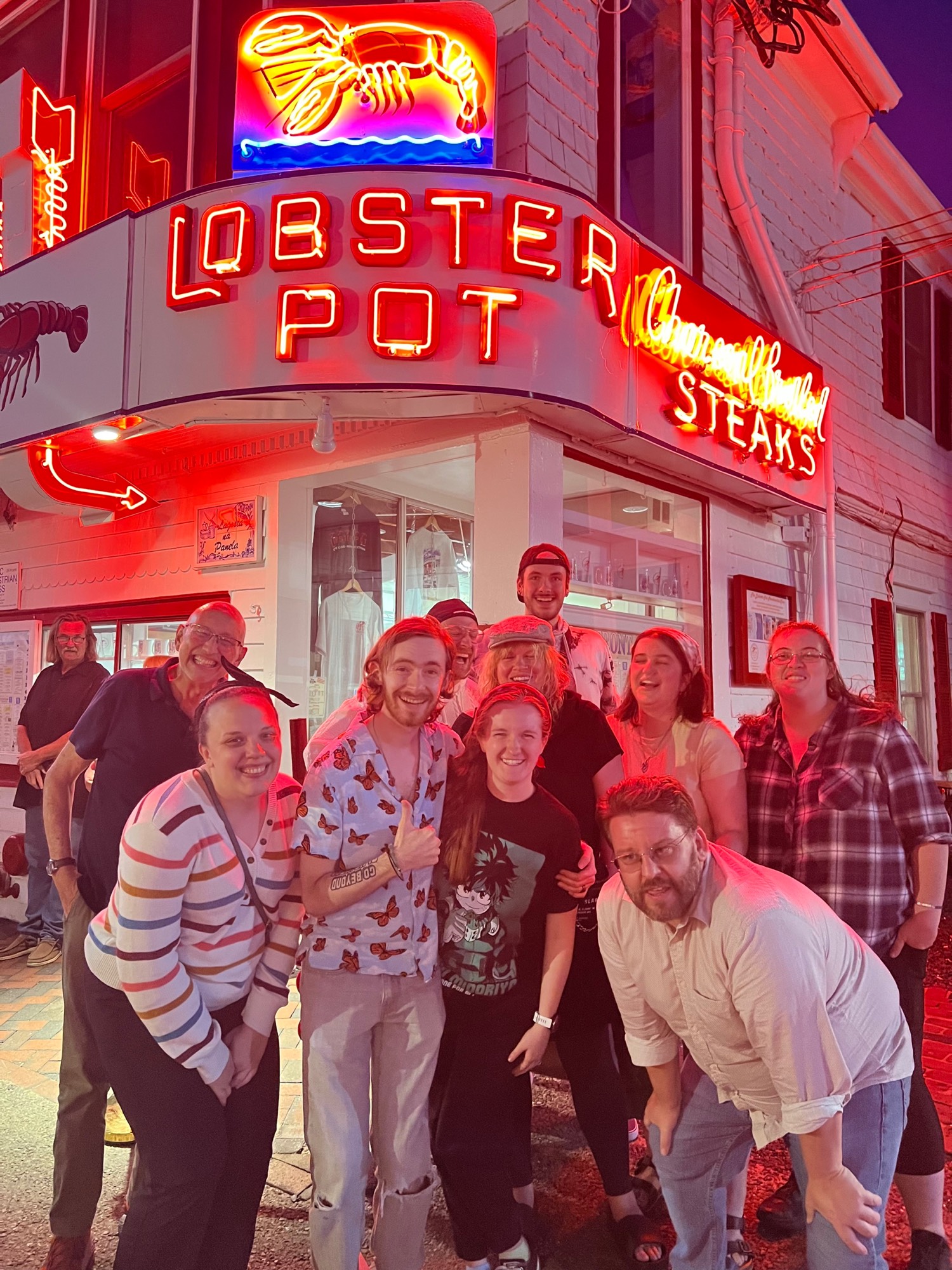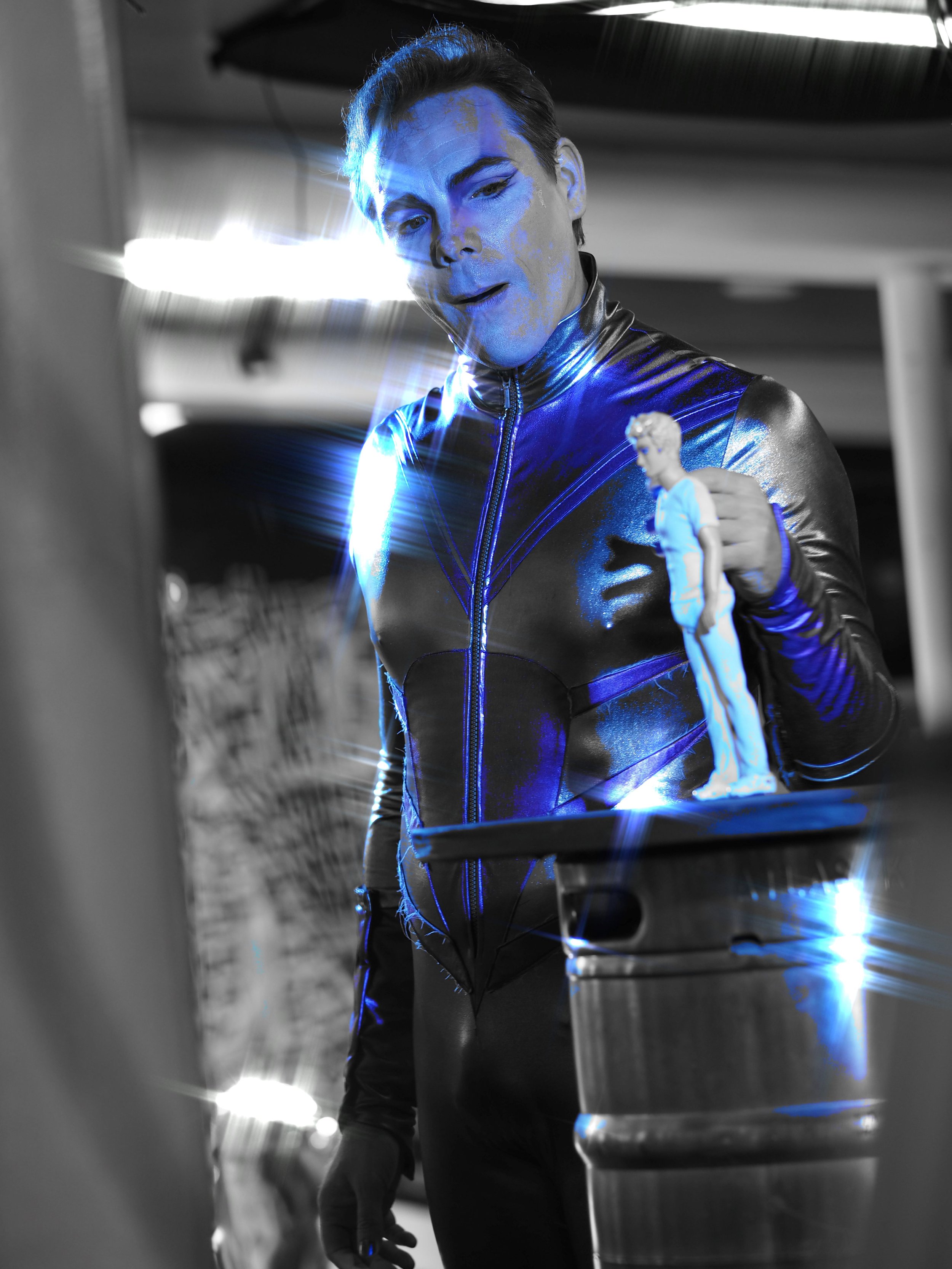Each fall for the past eleven years, graduate students in the School of Theatre & Dance are offered a class focused on the writing of playwright Tennessee Williams.
No ordinary seminar, this class also takes students to the week-long Tennessee Williams Festival in Provincetown, MA, where they see 8-10 plays and study under world-renowned scholars, providing students with myriad networking and professional development opportunities. They also collaborate with artists from around the world, literally—this year South Africa and Cypress—viewing their versions of Williams's less famous plays, and then, seizing the opportunity to discuss, analyze, and participate in a festival built around site-specific and found spaces.
Texas Tech participated in the formation of the Institute in 2012, and while they represent the bulk of the population studying there, they are also joined by independent artists and scholars from around the globe.
Curator David Kaplan, who is responsible for the festival itself, always builds the week around a theme. Past Institutes have focused on everything from Williams and Music, Women, Shakespeare, and O'Neill, but this past September, students experienced the Southern playwright and his relationship to science fiction and fantasy—certainly on the surface a stretch, but, as always, provocative and thought-provoking.
 This year, the group of nine graduate students, who, after flying to Boston and hopping
a ferry to Provincetown, jumped right into what can only be described as a true scholarly
adventure. Over the course of five days, attendees saw eight productions across five
different venues. The produced works included both original scripted productions and
dramatized versions of short stories by Williams, along with a full play or two. They
witnessed everything from plays that took place in hotel rooms to others that were
performed in small spaces in bars, sometimes being asked to sport hats made of tin
foil by an “alien” who greeted them at the door, and other times, experiencing versions
of plays conceived by puppeteers from New Orleans.
This year, the group of nine graduate students, who, after flying to Boston and hopping
a ferry to Provincetown, jumped right into what can only be described as a true scholarly
adventure. Over the course of five days, attendees saw eight productions across five
different venues. The produced works included both original scripted productions and
dramatized versions of short stories by Williams, along with a full play or two. They
witnessed everything from plays that took place in hotel rooms to others that were
performed in small spaces in bars, sometimes being asked to sport hats made of tin
foil by an “alien” who greeted them at the door, and other times, experiencing versions
of plays conceived by puppeteers from New Orleans.
And, of course, between viewing shows, institute participants attended discussions of the productions and lectures by Sci-Fi and Tennessee Williams scholars. Notable among the presenters were Kaplan himself, editor of the New Orleans Tennessee Williams journal, Margit Longbrake, and Sci-Fi scholars Lisa Yaszek, Greg Carr, and George Maurer. The discussions were fruitful, providing students with critical learning skills and opportunities for research and exploration. and many students made connections that will allow for further opportunities.
Students who attended the Institute expressed a strong appreciation the opportunity to share thoughts with the guest artists. Second-year graduate student Abby Wolff remarked, “A highlight of the trip, for me, was the engaging scholarship chats. These discussions opened windows to diverse perspectives and intellectual exchanges.”
Rachel Shipley was struck by the beauty of the town itself: “The moment I stepped off the ferry the charm of Provincetown washed over me. It was love at first sight. I had briefly researched the area before my arrival, but the colorful and quaint nature of the coastal town could not be properly captured in a quick Google search…. The festival's connection to the town was palpable and wove its way into a wide variety of aspects of my experience as an audience member.”
Students were also excited about many of the scholarly discussions. Dr. Lisa Yaszek was a particular favorite among students. First-year graduate student Zach Judah, said, “Dr. Yaszek's lecture on Sci-Fi provided integral knowledge on the genre that allowed us to reinterpret Williams's later work through the lens of science fiction and fantasy." He recommends the program enthusiastically: “Because the school of theatre and dance only requires participants to cover their meals, it's an opportunity all students should seize. The chances to meet and connect with scholars, as well as see a number of little-known Williams's shows, is invaluable.”

The Knightly Quest
(Photo by Ride Hamilton)
Students also enjoyed the atmosphere Provincetown provided during their stay, especially some of the unconventional choices to house theatre. Second-year MFA student Michael Logan said, “While I enjoyed the Provincetown Brewing Company as a restaurant and bar, I was especially excited to see it transformed as the set for one of the festival plays. It housed one of the favorite plays I saw there, The Knightly Quest, a one man show performed by an artist from South African surrounded only by a plethora of ‘Barbie' dolls; truthfully, he was a powerhouse.”
Dr. Mark Charney has been taking students to the institute and festival for over ten years now. When asked about his history with the festival, Charney said, “We actually went the first September I was hired as Director of the School, and while all years have been memorable, one of my favorite was O'Neill and Williams, especially because our students had the opportunity to be coached by famous actor Brian Dennehy.”
But the most important aspect of the class, Charney feels, is the opportunity students have to spend the semester dissecting, analyzing, and responding to Williams's less famous plays. “Not only has the trip inspired by theses and dissertations,” Charney remarks, “but it also encourages students to see the myriad ways in which live theatre can be conceived and re-imagined.”
